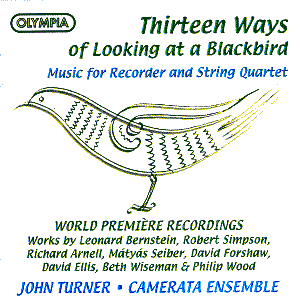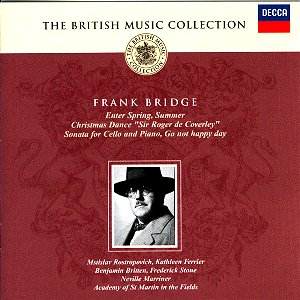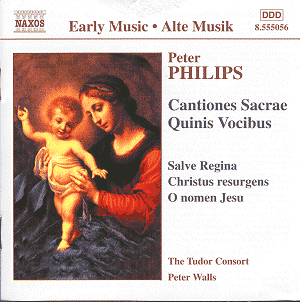 Composer: David Forshaw, Leonard Bernstein, Richard Arnell, David Ellis, Robert Simpson, Beth Wiseman, Mátyás Seiber, Philip Wood
Composer: David Forshaw, Leonard Bernstein, Richard Arnell, David Ellis, Robert Simpson, Beth Wiseman, Mátyás Seiber, Philip Wood
Works: Thirteen Ways of Looking at a Blackbird, Variations on an Octatonic Scale, Quintet “The Gambian” Op.107, Elegiac Variations Op.66, Variations and Fugue, Dances on my Grave, Pastorale, Concertino for Recorder & String Quartet
Performers: John Turner (recorder), The Camerata Ensemble (Richard Howard, Julian Hanson [violins], Tom Dunn [viola], Jonathan Price [cello])
Recording: ASC Studios, Macclesfield, December 2000 and May 2001
Label: OLYMPIA OCD 710
David Forshaw’s Thirteen Ways of Looking at a Blackbird, drawing inspiration from Wallace Stevens’s eponymous poem, offers a nuanced exploration of the interplay between nature and music. Originally conceived for recorder and piano, the string quartet arrangement premiered in December 2000 showcases the versatility of the recorder—an instrument often underestimated outside of its traditional folk and Baroque contexts. Forshaw’s work, while not overtly programmatic, invites listeners into a vibrant soundscape where the charm of bird song is articulated through a delicate tapestry of harmonies and textures, expertly realized by John Turner and the Camerata Ensemble.
The recording opens with Forshaw’s piece, setting a scene rich in color and atmosphere. The interplay between the recorder and strings is particularly noteworthy; the recorder’s agility, combined with the lush string backdrop, allows for a vivid portrayal of avian life. Forshaw’s writing is both lyrical and intricate, illustrating the potential of the recorder to evoke the fluttering and chirping of birds without resorting to mere imitation. This is an important consideration, as the recorder’s sound has often been pigeonholed into a limited expressive range. The Ensemble’s execution is commendable, with each player contributing to a rich harmonic dialogue that serves the work’s evocative nature.
Following Forshaw’s opening pièce de résistance is Leonard Bernstein’s Variations on an Octatonic Scale. Bernstein’s late-career work exhibits a playful yet sophisticated engagement with the octatonic scale, manifesting in a series of variations that are both intellectually stimulating and accessible. The recording captures the nuanced textures of this piece with exceptional clarity, allowing Bernstein’s characteristic wit and charm to shine through. The interplay between the recorder and cello is particularly engaging, with the cello providing a grounded counterpoint to the ethereal qualities of the recorder. The variations unfold with a dynamic responsiveness that speaks to the performers’ interpretative choices, blending pointillist and canonic themes seamlessly.
Richard Arnell’s Quintet “The Gambian” serves as an engaging contrast, infused with a celebratory spirit reflective of Gambia’s independence. The composer’s use of Gambian folk elements juxtaposed with Western classical traditions creates a vibrant musical hybrid. The performance is spirited, highlighting the rhythmic drive that characterizes Arnell’s style. The ensemble’s enthusiasm is palpable, and the buoyant melodies unfold with a joyous energy that is infectious. This work stands out as an arresting addition to the disc, showcasing Arnell’s ingenuity and the ensemble’s adeptness at navigating stylistic shifts.
Technical merit is evident throughout this recording, with Robert Simpson’s Variations and Fugue emerging as a centerpiece. This substantial work, reconstructed from the Dolmetsch Archives, resonates with a profound sense of integrity and thematic depth. Simpson’s mastery of counterpoint and formal development is on full display; the expansive fugue, described as “a whispering wind,” is executed with an attention to detail that feels both intimate and expansive. The recording captures the subtleties of dynamics and phrasing, enhancing the listener’s appreciation of Simpson’s craftsmanship.
David Ellis’s Elegiac Variations and Beth Wiseman’s Dances on my Grave introduce a more contemporary sound world, with Wiseman’s piece particularly notable for its modern harmonic language and evocative mood. The exploration of themes of loss and remembrance in these works resonates deeply, reflecting a personal yet universal experience. The ensemble’s ability to transition between the historical and the modern illustrates their versatility and the careful curation of this collection.
The recording concludes with Philip Wood’s Concertino for Recorder and String Quartet, a work that balances charm and vivacity. The melodic lines are both engaging and playful, with an infectious energy that invites repeated listening. The crispness of the recording allows the intricate interplay between the instruments to shine, making this piece a delightful finale.
This compilation stands as a testament to John Turner’s indefatigable spirit in championing lesser-known works for the recorder. Each piece is a carefully chosen gem that offers listeners diverse musical landscapes, illuminating the capabilities of the recorder in both historical and contemporary contexts. The engineering captures the nuances of each performance with impressive fidelity, ensuring that the listener is fully immersed in the richness of the ensemble’s sound. This release not only enriches the recorder’s repertoire but also serves as a compelling invitation to revisit and discover the depth of modern classical music. A significant addition to any serious collection, this recording is both a celebration of craftsmanship and a tribute to the enduring power of musical expression.



